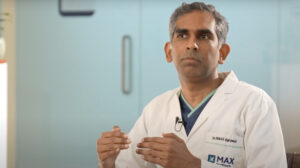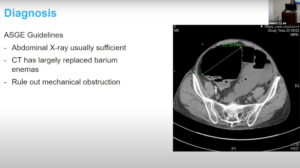NEW YORK (Reuters Health) ? Laparoscopic antireflux surgery (LARS) and the proton pump inhibitor (PPI) esomeprazole are similarly effective, safe, and well tolerated strategies for the management of patients with chronic gastroesophageal reflux disease (GERD), according to a 3-year interim analysis of the European LOTUS trial.
“Until now, antireflux surgery has been found to be superior to PPI in controlling overall disease manifestations, but both treatments left room for therapeutic improvement,” Dr. Lars Lundell from Karolinska University Hospital, Stockholm, noted in comments to Reuters Health.
“With the improved pharmacokinetics and bioavailability of the stereoisomer of omeprazole (esomeprazole), medical therapy today for GERD incorporates a more predictable and sustained level of acid inhibition,” Dr. Lundell continued.
The LOTUS trial “demonstrates that long term (3 years), laparoscopic Nissen fundoplication and esomeprazole medication are similarly effective treatments for GERD, based on symptom evaluation, endoscopy and overall quality of life measures,” Dr. Lundell added.
In the study, Dr. Lundell and colleagues randomly assigned 554 well-matched patients with GERD to LARS, comprising a total fundoplication and a crural repair (n = 288), or to esomeprazole 20 mg once daily, which could be increased in a stepwise fashion to 40 mg once daily and then 20 mg twice daily in the case of incomplete GERD control (n = 266).
“The success of both surgical and medical treatment arms, with 90% and 93% complete remission of symptoms, respectively, (based on strict definition of treatment failure), indicates that both treatments were highly effective,” the researchers report in the September issue of Gut.
While both treatments were well tolerated, the surgical group experienced slightly more gastrointestinal symptoms of a “postfundoplication nature,” such as stomach pain and other functional symptoms, the team found; however, their frequency and degree were “minimal, despite well-structured follow-up specifically designed to detect such problems.”
The current study supports the use of both long-term therapeutic strategies for the management of common GERD, Dr. Lundell concluded.
He emphasized that the surgery results “are applicable to any center that can show itself to be sufficiently experienced and suitably trained in the technique of laparoscopic antireflux surgery.”
Reference:
Gut 2008;57:1207-1213.




